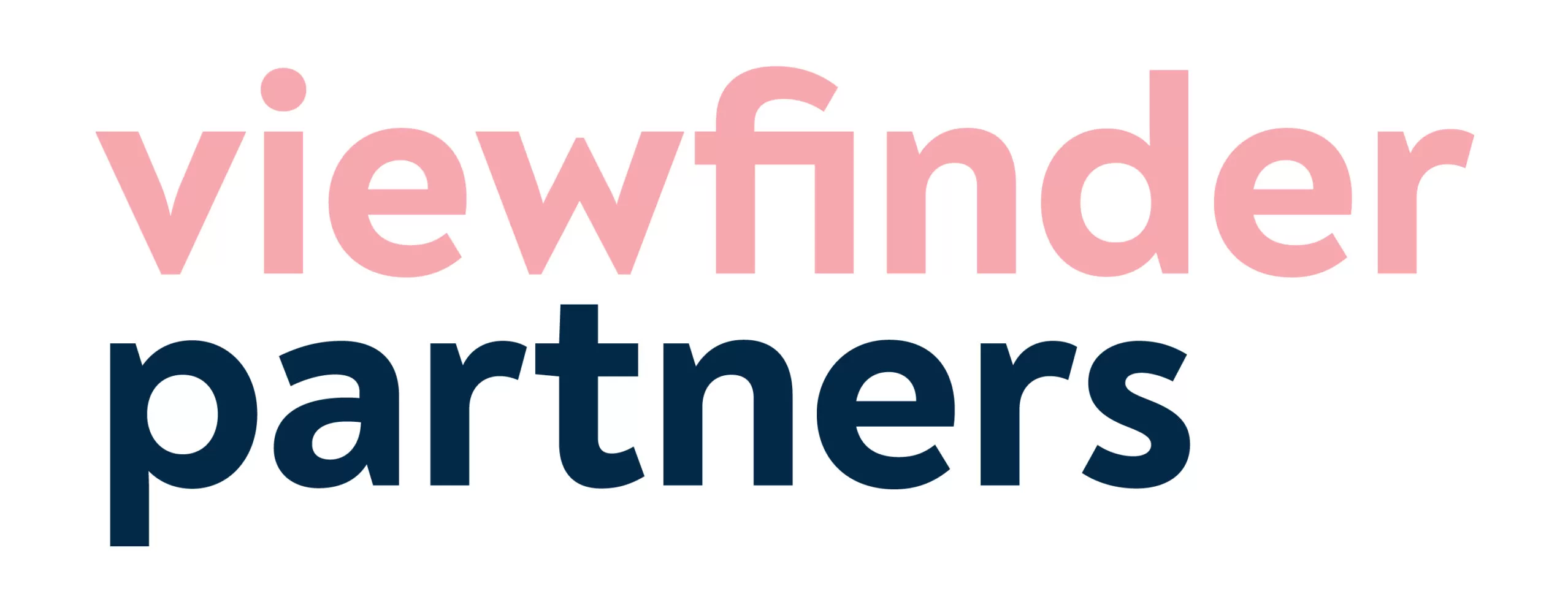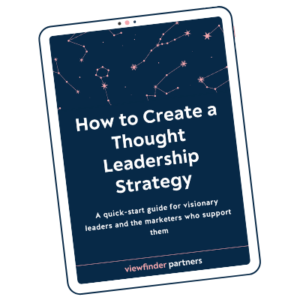“That’s a good question.”
How often do you hear that?
When I hear, “That’s a good question,” it signals that the other person is pausing to think. Whatever I’m asking them is unexpected and is pushing them to reflect in a new way.
In other words, I hit the jackpot.
Whether I’m interviewing a leader about their experience, my main goal is usually to nudge them off their normal, practiced talk track so that we can tread into a deeper, more interesting conversation.
The problem with most questions
But most people are not very good at asking questions. I realized the core problem on a recent road trip.
My husband and I were listening to podcasts. We were using the podcast app as a search engine, looking for people’s stories about traveling to specific areas in Europe with kids. We had questions, and we wanted to hear other people’s answers.
We listened to hours of conversations. And the editor in me was itchy. Because I kept hearing conversations that would have been much more interesting and helpful with one tiny tweak.
Here’s what I noticed: People default to asking leading questions. They fill in the other person’s answer for them.
Here’s an example:
HOST: “And did you love Munich so much? Isn’t it just the best?”
GUEST: “Err, actually, it wasn’t my favorite because…”
and
HOST: “And did you go to the museum?”
GUEST: “No, actually, we went to the park…”
That exchange would have been much better (for the people in the conversation and listeners) if the host asked open-ended questions instead.
Like this:
HOST: “How was Munich?”
and
HOST: “Where did you go?”
I make this mistake when I talk to my kids, too. I lead with the answer I want instead of just asking them the question.
So I’ll say:
“Was it a fun day?”
Instead of the better question:
“How was your day? Tell me about it.”
The lesson: Ask the simplest, most open-ended version of your question. “How was it?” “Tell me about it.” “What did you think?” “How did it go?” “Who was there?” “What did you do?”
Why every leader should ask better questions
But why are we talking about asking questions? What does that have to do with running a business or sharing thought leadership? Why do leaders need to think about asking good questions (or answering questions well)? Why should you care about having better conversations — getting off your standard talk track and getting others to dig deeper?
Two Harvard Business School professors wrote an article called “The Surprising Power of Questions”. Their take: learning how to ask good questions is a differentiator.
“Unlike professionals such as litigators, journalists, and doctors, who are taught how to ask questions as an essential part of their training, few executives think of questioning as a skill that can be honed—or consider how their own answers to questions could make conversations more productive.
“That’s a missed opportunity. Questioning is a uniquely powerful tool for unlocking value in organizations: It spurs learning and the exchange of ideas, it fuels innovation and performance improvement, it builds rapport and trust among team members. And it can mitigate business risk by uncovering unforeseen pitfalls and hazards.
[…] “Most people just don’t understand how beneficial good questioning can be. If they did, they would end far fewer sentences with a period—and more with a question mark.”
In other words, asking more questions (and more good questions) makes us better listeners. It draws out better information. It makes us smarter and better prepared.
When we ask open-ended questions, we’re more empathetic listeners. We let the person we’re talking to tell us about their experience instead of setting them up to give the answer that would be most comfortable or expected for us to hear. We open ourselves to new information. It’s a humbler, less narcissistic way to connect with other people, and it leads to better results for ourselves, our relationships, our thought leadership, and our businesses.
The challenge: In your conversations this week, focus on asking open-ended questions. Ask a question and open yourself to the answer. Listen to the other person instead of filling in their response for them. Take note of what they share that’s new, surprising, or interesting.







